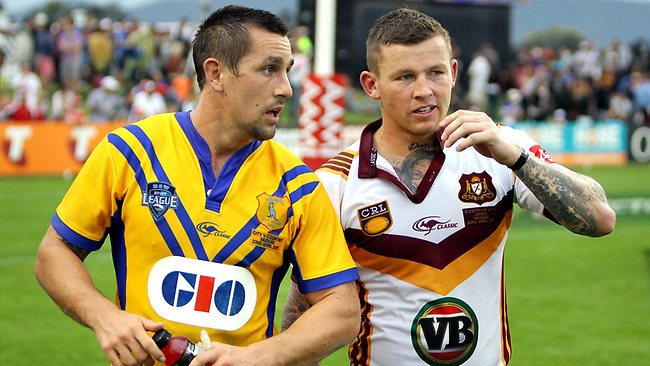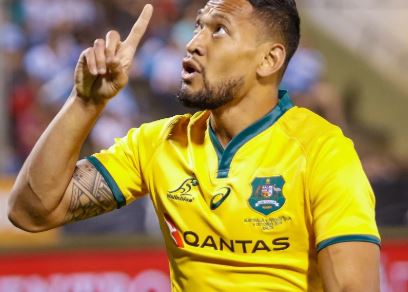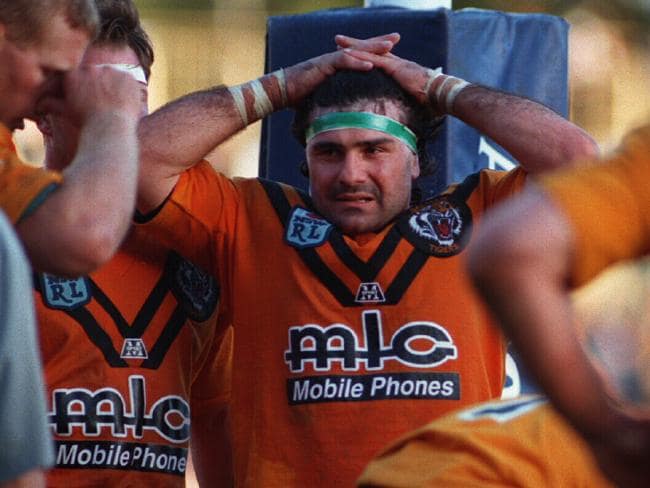BY CURTIS WOODWARD
How about comedian Tom Gleeson’s form last week when he spoke up for the inferior “East Coast Rugby League” against the mighty AFL?
“For my New South Wales friends, I want to explain to them that International Rules is Aussie rules combined with Gaelic football,” he said to AFL legend Chris Judd on the ABC’s The Weekly.
“So what’s it like playing a game that two countries don’t give a s*** about?
“The game I mean, International Rules, do you agree it’s like watching a dog try to f*** a cat? It’s ugly, and it shouldn’t be happening.”
How dare Mr. Gleeson!
After all, the NRL is only played in Sydney and Brisbane – nobody else cares, remember?
While Aussie Rules isn’t this writer’s cup of tea, it must be noted that yes, the AFL has teams right across the nation unlike the NRL who pulled the plug on Perth and Adelaide many years ago as a result of the end of the Super League War. We wait for their return.
But we also forget that these are two vastly different codes with huge supporter bases (AFL through live crowds and NRL through television).
What rugby league does have over AFL is its representative calendar and that should never be forgotten.
Internationals, State of Origin, Indigenous All Stars and yes – even City versus Country give the NRL a valuable weapon in the ongoing struggle for hearts and minds.
The AFL once had State of Origin too but it was quickly devoured by greedy clubs.
Once the clubs had the power, AFL State of Origin was dead.
ONE MORE TIME:
CRL are proud to announce the VB Country Origin side to take on City in #Mudgee on Sunday, May 7th.#CountryCity #gocountry pic.twitter.com/HPbZf57vf0
— NSW Rugby League (@NSWRL) May 1, 2017
Wonder what the likes of Shaun Fensom, who busted a boiler to get a Country jersey and never did, think of this farce. #CityCountry
— Jon Tuxworth (@Tuxy81) April 30, 2017
City checking on fitness of Max Krilich. #citycountry
— Andrew Voss (@AndrewVossy) April 30, 2017
Dumping City-Country is just ridiculous. It shows a total lack of respect for bush footy fans. #NRL
— James Smith (@JamesSmith1001) April 28, 2017
To AFL fans and club officials, there is nothing as important as their team. Nothing says PR stunt like the AFL in India where locals are more likely to bowl a shiny red Aussie Rules ball down a cricket pitch than kick it.
Rugby league on the other hand has the World Cup and the jewel in the crown, State of Origin, on the horizon.
And then there’s City versus Country. A match that’s meant to promote the game in the bush, a chance to bring top flight footy to those in need. Have we forgotten the role grassroots Country football plays in sustaining the NRL?
If there’s no Country footy, there’s no Josh Jackson and if there’s no Josh Jackson, what’s the damn point?
Canterbury Bulldogs coach Des Hasler isn’t the first coach to ban players from representative sides but he has thrown rugby league back on the slippery slope.
Who is he to say Jackson can’t go back to Mudgee in a Country jersey?
Who is he to deny the people of Mudgee a chance to see Jackson and rugby league’s best players?
Last time we checked, Canterbury is just another team in the NRL. They don’t have a God-given right to be in the NRL in the first place. Just like the other fifteen clubs.
Speaking to Triple M on Sunday night, St George Illawarra forward and Country lad Jack de Belin put it perfectly.
“It was a great honour [playing for Country in 2016], and when you think about it, if it wasn’t for Country rugby league and the Cootamundra Bulldogs, I wouldn’t be here today. A big credit to them.”
But you don’t get a say Jack – only the NRL coaches do and that’s why City versus Country is already dead in the water.
Once upon a time, a week in camp would improve those players when they returned to Club Land.
What’s next?
State of Origin?
Representative rugby league is a powerful asset but if you leave it up to the NRL coaches, there’ll be no Kangaroos, Blues, Maroons, Samoa, Tonga or Indigenous All Stars. They’ll all be swallowed up just like the people in Country New South Wales. Because if it’s not NRL, it just doesn’t matter.
Once we realise how important representative footy is, we might just start using it the right way.





